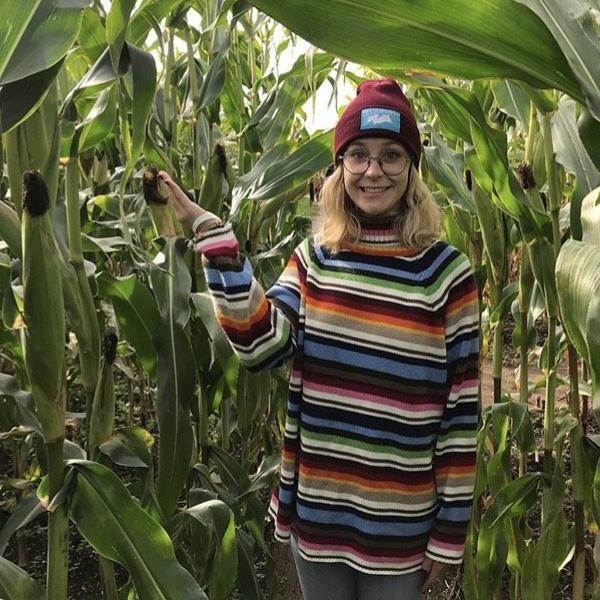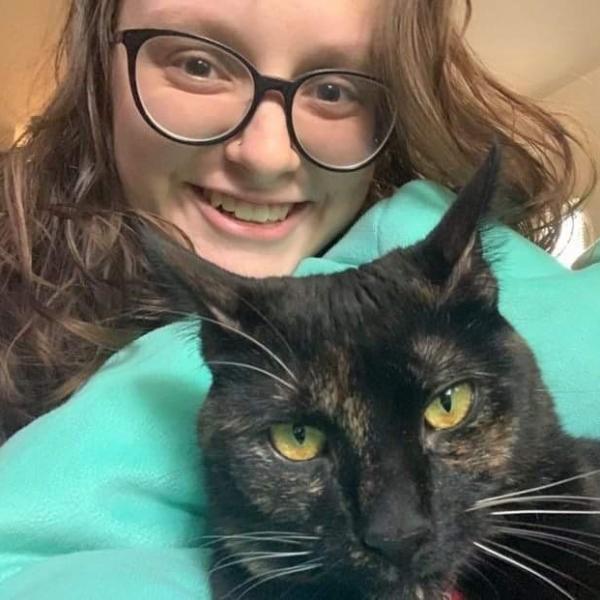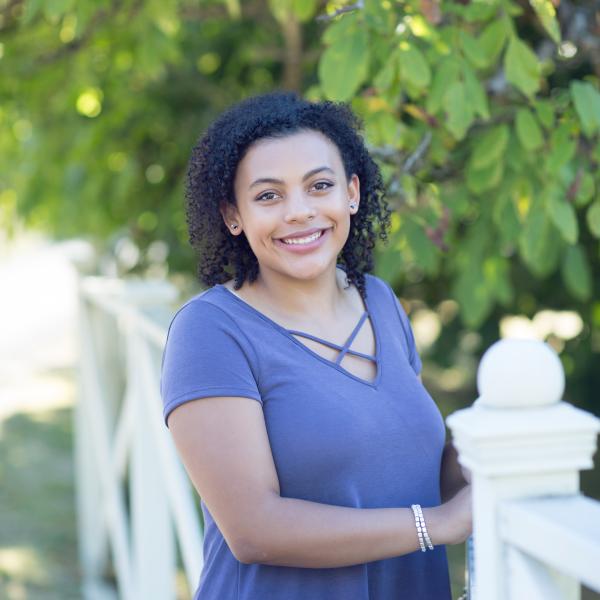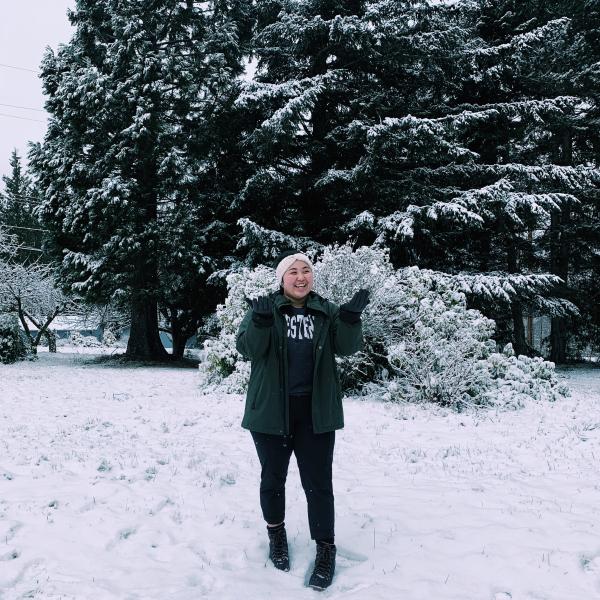Testimonials
Future Woodring Scholars
Diversity, Recruitment and Retention

When I was in FWS the content in the classes we learned were things I had never heard of or thought about. The information learned in SOC 269, Education 110 and 115 were eye opening to me. All future educators should have classes that are introductory to different systemic issues within the education system, this is what FWS gave me. Being a mentee, I did not grasp how important and meaningful being in FWS was until it ended. Hindsight is always 20/20 and looking back, I see how valuable it was and still is. The knowledge from the classes, the support from mentors, connection with professors, and having a community of students as a freshman is incredible. I became a Peer Mentor for Future Woodring Scholars because it was such an important part of my first-year experience at Western.
Ilona Brose2019-2020 Cohort

As a first-generation college student of a Latinx mother, it was hard at first to settle into the rigorous life at a university. With not having parents who went to a university, and being a student with a low income, it was a struggle at first to find my place here at Western Washington University. The first time I went into a classroom Fall quarter was for a pizza party where I met my FIG and the faculty and staff that were involved in the Future Woodring Scholars FIG. This was where I met some of my best friends of today.
Without this program, I may not have been able to meet some of my closest friends and mentors, nor would I have been able to be supported in what I wanted to do for my degree and education. In this program, we even had a day during our first quarter together where we met different faculty members throughout Woodring College of Education, and that would not have been possible without this program.
Even after my first year was over, and still today, I am getting the support I need in order to be where I should be for my degree and program. I have continued to give back and give support to others by being a Peer Mentor for this program, and I would do anything to create a supporting and loving experience such as I had gotten through this program.
Jori Denton2017-2018 Cohort

FWS completely changed my perspective of education. As a first-generation college student, I had absolutely no idea what to expect when entering Western. However, FWS granted me with opportunities to learn to think critically, engage in social justice issues, and form meaningful relationships with peers and staff/faculty. I met some of my closest friends and was able to form amazing mentor relationships throughout my journey. In fact, I loved the program so much I became a peer mentor for FWS students my second year and have remained working for the program ever since. I would not be where I am today without Future Woodring Scholars, and the values and ideals it instilled in me my first year at WWU.
Ella Harris2017-2018 Cohort

My time with FWS has been formative to the work that I plan to do in the future. Before FWS, I saw education as this very passive experience, was unaware of systemic inequality embedded in the education system, and failed to question the curriculum being taught in schools.
Through the EDUC 115, SOC 269, and SMNR 101 course work I was able to develop a critical consciousness that understood the ways that the opportunity gap was a result from years of oppression as well as an education system that rewards whiteness. Our COMM 101 course gave me the skills and platform to articulate what I was learning about. While developing a critical consciousness, I was able to be a part of a community of learners who were also passionate about education and were being introduced to the same course content.
In classes we thought through concepts together, thought about how our own experiences were reflected or challenged what we were learning, and did so in an environment that felt safe. At the time, I didn’t realize how important that learning community would be to me and it wasn’t until I took classes without that community that I really understood its value
Casey Tokita2017-2018 Cohort

